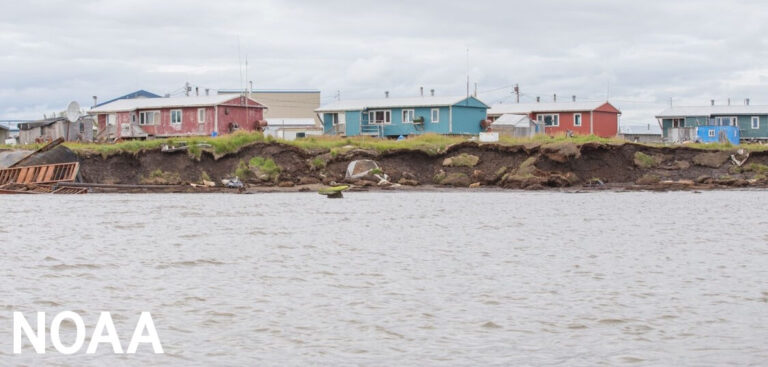NOAA and Tribal health organization Alaska Native Tribal Health Consortium (ANTHC) have launched a pilot project to assess the Alaskan landscape for climate change challenges and potential resilience strategies for native communities.
The project, ‘Expanding and Connecting Tribal-Led Climate Change Capacity to Serve Indigenous Community Needs in Alaska,’ will establish a director of Tribal climate change initiatives position at ANTHC to leverage statewide relationships with Tribes. The US$279,088 project includes a US$258,000 NOAA investment in FY 2022, with ANTHC providing the balance through in-kind services.
The project was developed in response to feedback received during a 2021 climate and equity roundtable. Participants focused on climate equity (the concept of ensuring that communities that bear unequal burdens created by climate change have the resources needed to build resilience and adapt to change), community health and well-being and barriers Alaska Native communities face in accessing needed resources. Addressing environmental threats that are worsening with climate change, including food security, extreme flooding and erosion and melting permafrost, were identified as high priorities.
The project aims to accomplish three objectives. The first is to conduct a landscape assessment of Tribal climate change adaptation activities in Alaska and establish a baseline understanding of Tribal climate change challenges and responses. Next, the organization intends to formulate and launch an Alaska Tribal Climate Change Advisory Group to ensure that Tribal climate change efforts across the state are led and prioritized by Alaska Native people. The third stage will include leading the Tribal review and publication of the Unmet Needs of Environmentally Threatened Alaska Native Villages Report, which will inform NOAA and other agency investment priorities.
Don Graves, the US Deputy Secretary of Commerce, said, “The Department of Commerce takes seriously its responsibility to engage with Tribal partners, and this innovative pilot project is an example of this commitment. Bringing together NOAA’s climate data and tools with the equity, health and service delivery expertise of ANTHC will help ensure Alaska Native communities have the resources to make informed decisions in the face of climate risks.”
Valerie Nurr’araaluk Davidson, president and CEO of ANTHC, said, “We recognize that our strength and resilience comes from our ability to work together to solve problems. Erosion, flooding and melting permafrost continue to threaten Alaska Native communities, impacting the culture, and the ability to hunt and gather food to nourish our loved ones. Through partnerships with NOAA and their continued efforts, we can address the environmental issues that worsen with climate change.”
Rick Spinrad, NOAA administrator, said, “NOAA hears loud and clear that Alaska Native perspectives, voices and leadership must drive climate change conversations and action for Tribal communities across Alaska. This project is about establishing a partnership based on trust, mutual respect, deep listening and meaningful follow-through in order to realize positive changes in achieving climate equity. NOAA is proud to work directly with ANTHC on this project to build trusted relationships and meaningful partnerships with Tribes and other Tribal Organizations in order to address barriers and improve Tribal community resilience to climate change across Alaska.”



